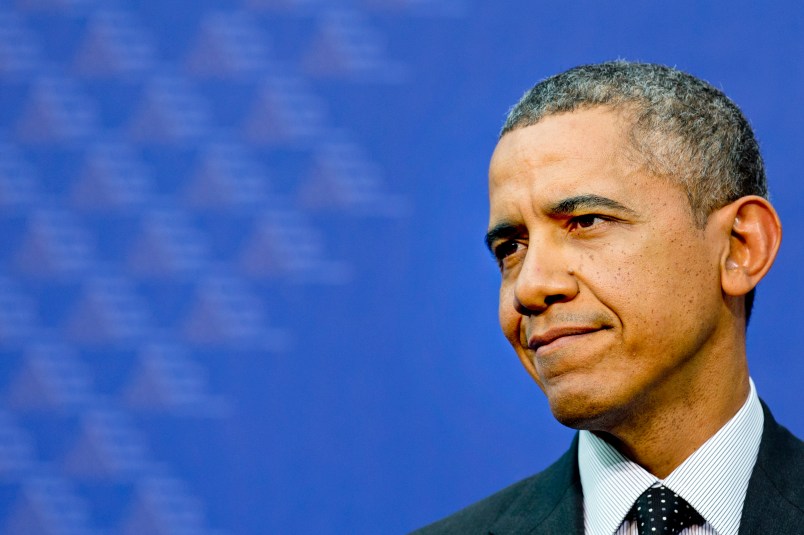In a move with big election-year implications, the Obama administration announced Monday that it would reverse a proposed cut to private Medicare Advantage plans. The decision undercuts one of the GOP’s favorite lines of attack on Obamacare and on Democrats in general.
The change announced by the federal Centers for Medicare and Medicaid Services transformed what was a projected 1.9 percent payment cut in 2015 that had been proposed in February into a projected 0.4 percent payment increase.
Medicare Advantage plans are alternatives to Medicare offered by private insurers where recipients share some of the cost of the generally more generous plans. Insurance companies, alongside congressional members from both parties, had urged a stop to the proposed cuts. In total, Obamacare is supposed to cut $150 million from the program over 10 years.
America’s Health Insurance Plans, the industry’s top lobbying group, called its blitz to stop the cuts its “largest-ever mobilization.” Monday’s announcement is a big win for the industry — though it means more red ink for the federal budget. Independent analysts said insurers could still face cuts, though they should be smaller than originally expected.
For Republicans, though, it might be unwelcome news. Attacking the cuts, authorized under Obamacare, had become a favorite criticism of the health care reform law — especially as other critiques dwindled. And they quickly sought to portray Monday’s change as political opportunism by the Democrats.
“In an effort to provide political cover for vulnerable Democrats, the Administration unilaterally issued an election-year reprieve from these disastrous cuts,” Jahan Wilcox, a Republican National Committee spokesperson, said in a statement. “Once we get past the midterm elections, it won’t take long until Democrats reinstate these cuts to Medicare.”
Some Senate Democrats, from leadership figures like Chuck Schumer (NY) to vulnerable 2014ers like Mary Landrieu (LA) and Mark Pryor (AR), had joined the Republicans in asking the Obama administration to reverse the cuts. That united call might have been ostensibly bipartisan, but Monday’s action should soften the attack’s bite against those at-risk Democrats.
To wit, Schumer quickly and unreservedly praised the administrative actions Monday, while Senate Republicans were more tempered.
“In many parts of the country, including New York, Medicare Advantage works very well,” Schumer said in a statement. “They’ve shouldered their share already and this proposed cut would have been disproportionate, hurting seniors who would lose doctors or pay more. We’re glad the administration heeded our call and reversed the policy.”
Sen. Orrin Hatch (R-UT), however, was clearly loathe to let the administration off the hook. “Although CMS has scaled back some of the new proposed cuts, much more work needs to be done to protect our seniors,” he said.
Rep. Fred Upton (R-MI), chair of the House Energy and Commerce Committee, refused to even acknowledge the change in his own statement.
Too many seniors already have lost their Medicare Advantage plans because of the health law’s raid on the program. Because 80 percent of the law’s cuts are still scheduled to go into effect, Congress must work to ensure the health law’s continued attack on Medicare Advantage is stopped and seniors have the peace of mind they deserve. Seniors should not have to worry every year about losing their Medicare Advantage plan, doctors, or benefits.
Their reticence makes some sense politically: The GOP has been eager to turn seniors against Democrats by linking the Medicare Advantages cuts to the health care reform law — even though many of its members voted for the same cuts when they were part of the House Republican budget drafted by Rep. Paul Ryan (R-WI).
Republicans started trotting the attack line in February when the new round of cuts were proposed. It did prove problematic at times — after, say, the press caught Rep. Bill Cassidy (R-LA), who is challenging Landrieu, bashing the cuts when he voted for them in Ryan’s budget.






